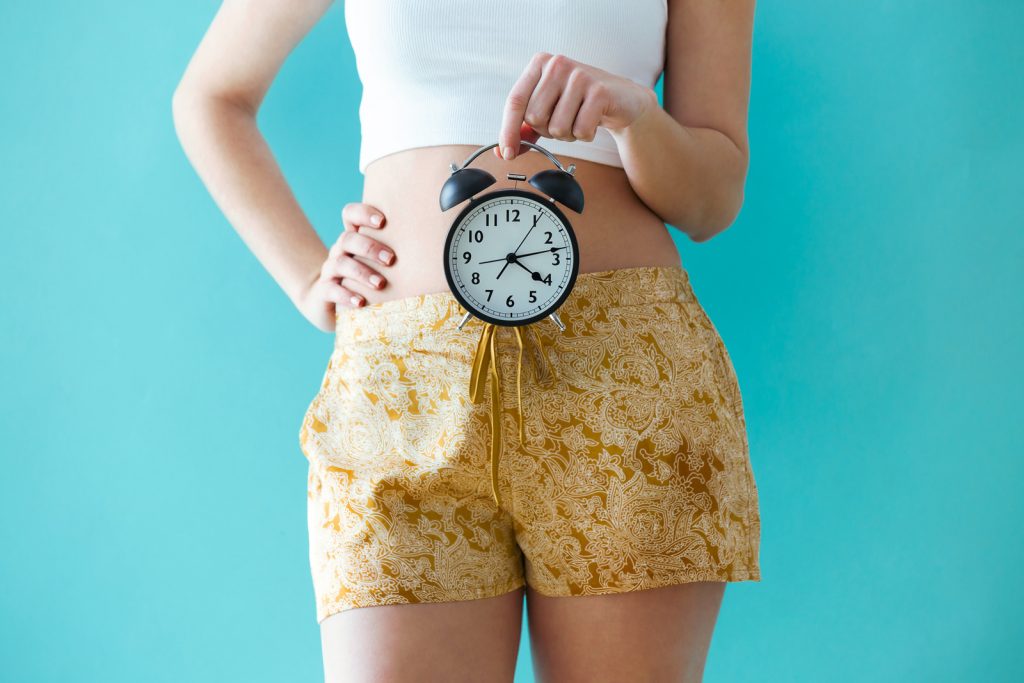Once you’ve entered puberty, the body will mature rapidly and go through a lot of changes such as getting your first period. There are physical changes including the development of breasts, pubic hair and more importantly, menstruation. Every girl starts menstrual cycle during this time, however the exact time will vary based on various factors. A period is a release of blood from girl’s uterus, out through the vagina and is a sign of getting close to the end of puberty.
Getting first period is an important milestone in a girl’s life. It signals the beginning of a long phase of life (around 40 years) that may be fertile. This means that with sexual contact, they might get pregnant.
What is period/menstruation?
Every month the body prepares the uterus for pregnancy. This process involves lining the uterus with tissue and blood in preparation for implantation of the egg. Menstruation takes place when the lining sheds and exists the body through the cervix and vagina. Bleeding of blood and tissue out during this time and it will last for an average of 3 to 5 days. The menstrual cycle has four phases that take place over the course of the month are menstrual phase, follicular phase, ovulation and luteal phase.
When to expect your first period?
Most girls get first period by the age of around 12 years. But getting it any time between age 10 to 15 is also fine as every girl’s body is scheduled differently. There isn’t one right age for a girl to get period but there are some clues that it will start soon like –
- Most of the time, a girl gets period about 2 years after breasts start to develop.
- Another sign is vaginal discharge fluid (sort of mucus like) that a girl might see or feel on underwear. This discharge usually begins about 6 months to a year before a girl gets first period.
There are several factors that influence the age of the first period like –
- Nutrition
- Exercise
- Genetics
- Ethnicity
- Body size
- Geography or location
- Family size or structure
- Illness or stress
What causes a period?
A period happens because of changes in hormones in the body. Hormones are chemical messengers. The ovaries release the female hormones estrogen and progesterone. These hormones cause the lining of the uterus (or womb) to build up. The built-up lining is ready for a fertilised egg to attach to and start developing. If there is no fertilised egg, the lining breaks down and bleeds. Then the same process happens all over again. It usually takes about a month for the lining to build up, then break down. That is why most girls and women get periods around once a month but sometimes can get little less or more often.
How long does a first period last?
For the first few years after girl starts period, it may not come regularly. This is normal at first and by about 2-3 years after first period, a girl’s periods should be coming around once every 4-5 weeks. Periods usually last about 5-7 days but it can be shorter or last longer. It may be very light with just a few spots of brownish blood or it may start and end more brownish but be brighter red on heavier flow days.
Signs your first period is coming
First period comes and goes with very little in the way of signs and symptoms. Common signs and symptoms are –
- Cramping in the lower abdomen
- Acne
- Abdominal bloating
- Breast tenderness and soreness
- Lower backache
- Diarrhea or nausea
- Dizziness and fatigue
- Constipation
- Clear or white vaginal discharge
Most of these symptoms don not last long and can be treated with pain relief medications. A heating pad or hot water bottle on the abdomen or lower back can help ease pain in the areas,
Should I watch out for any problems?
Most girls don’t have any problems with periods but contact the doctor if –
- Age 15 and haven’t started period
- Have had period for more than 2 years and it still doesn’t come regularly
- There’s untimely bleeding between periods
- Have severe cramps that don’t get better with painkillers
- Having very heavy bleeding
- Have periods that last more than about a week
- Suffering from a severe premenstrual syndrome that gets in the way of everyday activities
Conclusion
Periods are a natural, healthy part of a girl’s life. These shouldn’t get in the way of exercising, having fun and enjoying life. Contact the doctor if periods don’t occur and you have a problem.
References –
- all about periods (for teens) – nemours kidshealth
- your first period – your period
